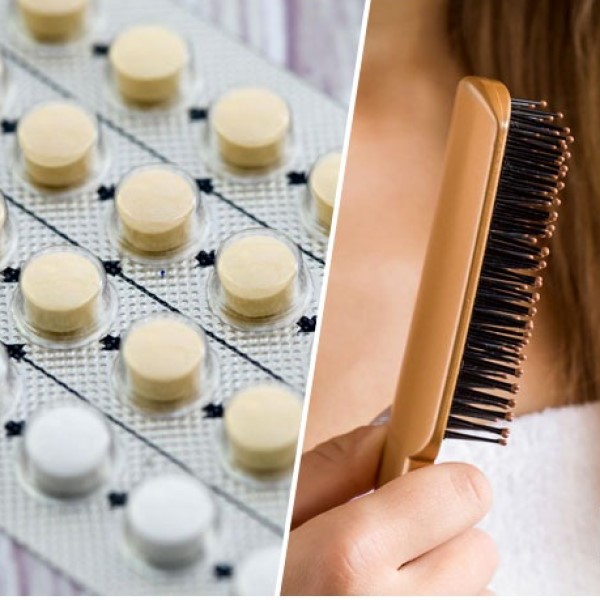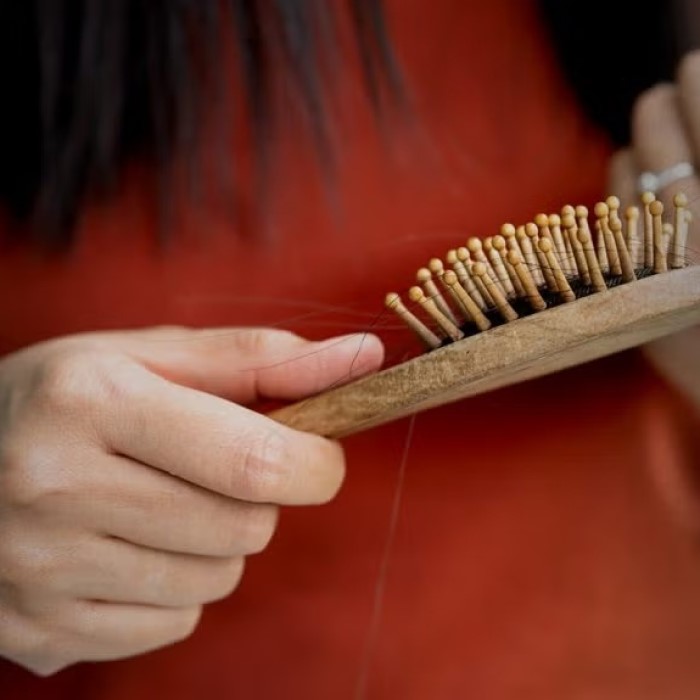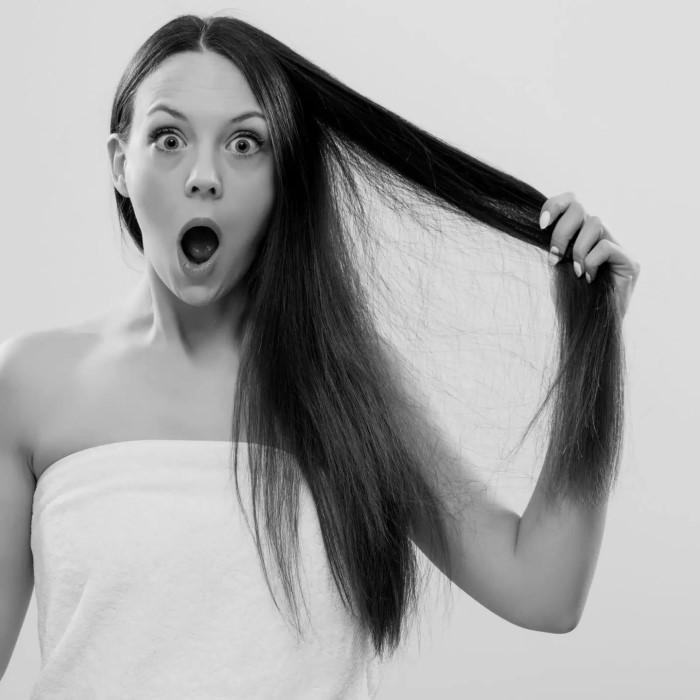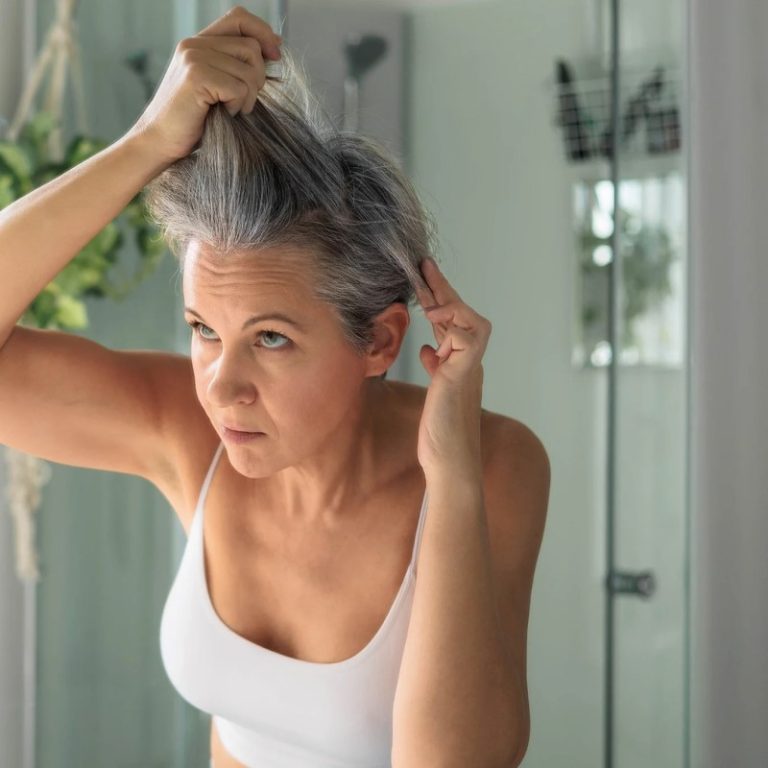
Does Birth Control Cause Hair Loss or Not: Busting Myths
Introduction
Does birth control cause hair loss?The connection between birth control and hair loss has sparked extensive discussion among women, healthcare professionals, and online communities. Many women who take hormonal contraceptives have reported hair thinning, leading to concerns and curiosity about whether birth control actually causes hair loss. Social media is rife with anecdotal claims, making it hard to differentiate fact from fiction. In this article, we will examine the possible link between birth control and hair loss, explore various types of contraceptives, and provide actionable advice for individuals concerned about maintaining a healthy mane. Let’s dive deep into whether birth control truly causes hair loss and what you can do to counteract any unwanted effects.

Understanding the Types of Birth Control
When discussing the effects of birth control on hair health, it’s essential to understand the different types available. The primary categories include hormonal and non-hormonal methods. Hormonal birth control includes pills, patches, injections, and implants that release synthetic hormones such as estrogen and progestin. These hormones prevent ovulation and can regulate menstrual cycles.
On the other hand, non-hormonal options, like copper IUDs, utilize a different mechanism of action and do not influence hormonal levels in the body. As a result, non-hormonal birth control methods are less likely to affect hair growth directly. However, it is those hormonal methods that may lead to subtle changes in hair health, which prompts concern for many women.
The Science Behind Hair Growth and Hormones
Does birth control cause hair loss? To better understand how birth control might influence hair loss, we should look at the hair growth cycle. Hair grows in three phases: anagen (growth phase), catagen (transition phase), and telogen (resting phase). Hormonal fluctuations, particularly involving androgens, can disrupt this cycle.
When a woman begins taking hormonal birth control, the synthetic hormones can alter the levels of natural hormones in her body. For some individuals, this can lead to an increase in hair shedding as more hair follicles enter the telogen phase. The more sensitive a person is to these hormonal changes, the more likely they may experience shedding.
Temporary vs. Permanent Hair Loss
Most cases of hair loss associated with birth control are temporary. Women who notice thinning may do so shortly after starting new medication, but this shedding usually improves when they adjust to the hormonal changes or discontinue the birth control. However, it is essential to note that not everyone will experience this reaction.
Common Myths About Birth Control and Hair Loss
Many myths surround the topic of birth control and hair loss, leading to misunderstandings and unnecessary anxiety. For instance, a prevalent belief is that every woman will experience hair loss while using hormonal contraceptives. This is false. Many women use hormonal birth control without any noticeable effect on their hair.
Another myth is that switching to a different pill will instantly stop hair loss. While a different formulation may work better for some women, it can take time for hormones to stabilize and for any effects on hair to manifest. Patience is vital as you find the right birth control option for your needs.
How to Minimize Risk of Hair Loss While on Birth Control
If you’re currently using birth control and are concerned about hair loss, there are proactive steps you can take to minimizing risks. First and foremost, maintain a balanced diet rich in vitamins and minerals conducive to hair health. Nutrition plays a critical role in hair growth, making it essential to consume sufficient amounts of iron, biotin, and omega-3 fatty acids.
Staying hydrated is equally important. Water supports healthy hair follicles, so ensure you drink enough fluids throughout the day. Moreover, consider integrating hair-supportive supplements into your routine, such as collagen or specific multivitamins developed for hair, skin, and nails, after consulting with your healthcare provider.
Hair Care Practices to Prevent Damage
Additionally, pay attention to your hair care routine. Use gentle shampoos and conditioners free from sulfates and other harsh chemicals. Heat styling tools can damage hair; use them sparingly and always apply heat protectants. Regular trims can also reduce split ends, ensuring that your hair remains healthy.
If you notice early signs of thinning, such as more hair on your pillow or in the shower drain, consider using volumizing products that can make hair appear fuller. Scalp massages are another excellent technique, as they can improve blood flow to hair follicles, potentially enriching their health.
Which Birth Control Pills Are Linked to Hair Loss?
Selecting the right birth control pill can significantly impact hair health. Some pills are better suited for those concerned about hair thinning. Generally, birth control pills containing lower doses of androgens are less likely to cause hair loss, while those with higher androgen levels—such as some formulations of Ortho Tri-Cyclen—may exacerbate the issues for predisposed women.
Conversely, certain pills are known to be more hair-friendly. Pills containing drospirenone, like Yaz or Yasmin, have anti-androgenic properties that may help protect against hair loss. Always consult with your doctor before making a switch; they can guide you towards a contraceptive option that aligns with your hair health concerns.
Does Hair Loss After Birth Control Grow Back?
One of the most pressing questions posed by those experiencing hair thinning from birth control is whether their hair will grow back once they stop taking the medication. The reassuring answer is that in most cases, hair does grow back. Many women report a gradual return of thickness within six months to a year after discontinuing hormonal birth control.
However, it’s essential to understand that while recovery is typical, individual results vary. Factors such as overall health, stress levels, pre-existing conditions, and dietary habits can influence the regrowth process. For those that do not see improvements after six months, it may be wise to consult a healthcare professional to investigate any underlying conditions.
The Role of Stress in Hair Loss
Understanding the Impact of Hormonal Changes:
-
- Many women experience hormonal fluctuations, particularly due to the use of birth control.
- These hormonal changes can exacerbate hair loss, making it crucial to address them alongside other contributing factors.
The Link Between Stress and Hair Loss:
-
- Stress is recognized as a major factor contributing to hair loss.
- When the body is subjected to stress, it can trigger a response that pushes hair follicles into the telogen phase, where they are more likely to shed.
Physiological Response to Stress:
-
- The physiological effects of stress can disrupt the normal hair growth cycle.
- This disruption may result in increased hair shedding, which can be particularly concerning for women experiencing hair loss.
Combatting Stress to Promote Hair Health:
-
- Engaging in relaxation techniques can help mitigate the effects of stress.
- Practices such as yoga, meditation, and deep breathing are effective ways to manage stress levels.
The Importance of Exercise:
-
- Regular physical activity is another powerful tool for reducing stress.
- Exercise promotes the release of endorphins, which can enhance mood and overall well-being, thereby indirectly benefiting hair health.
Developing Mindfulness Practices:
-
- Mindfulness techniques help individuals stay grounded and manage their reactions to stress.
- Incorporating mindfulness into daily routines can contribute to lower stress levels and improved mental clarity.
Seeking Personalized Coping Mechanisms:
-
- It’s essential to seek guidance on coping mechanisms that resonate with you personally.
- This could include exploring different forms of self-care, creative outlets, or social support systems.
Finding Balance for Overall Well-being:
-
- Striking a balance between daily responsibilities and self-care activities can significantly influence overall well-being.
- Prioritizing self-care not only boosts mental health but also positively impacts hair health.
The Holistic Approach to Hair Loss:
-
- Addressing hair loss effectively requires a holistic approach that considers various factors, including stress management.
- By tackling stress, women can take proactive steps towards enhancing not just their hair health but their overall quality of life.
FAQs
Which birth control pills cause hair loss?
Some pills with high androgen levels, such as Ortho Tri-Cyclen, can lead to hair loss. Consider low-androgen options like Yaz or Spironolactone for better hair health.
How to avoid hair loss on birth control?
Maintain a healthy diet, stay hydrated, and use gentle hair care products. Regular scalp massages and hair-supportive supplements can also help maintain your hair health.
Conclusion
Does birth control cause hair loss? In summary, while there can be a connection between birth control and hair loss, it is not a universal truth. It’s crucial to evaluate the specific type of contraceptive, individual health conditions, and genetic predispositions when considering this issue. Recognizing the myths surrounding this topic is equally important. With proper management, including a healthy lifestyle and hair care routine, you can mitigate the risks associated with hormonal fluctuations.
If you have concerns about starting or continuing birth control due to hair health, consult with a healthcare provider for personalized advice. Informed choices based on accurate information allow you to navigate both reproductive health and maintaining your luscious locks with confidence.




